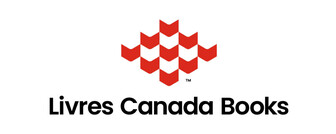
Livres Canada Books (LCB) is a not-for-profit organization that supports Canadian-owned book publishers in their export sales activities and in developing international partnerships. It does so through a range of services, including financial support, promotion, research, training, and a collective presence at major international book fairs.
LCB also showcases collections of books from publishers across the country and publishes two annual catalogues promoting independent Canadian publishers' titles. When it came time to create a new website for LCB, the team also saw an opportunity to establish a more effective display of Canadian books online, and to use the new site to drive two key workflows: publisher registrations for major industry events abroad and title registrations for LCB’s annual catalogues.
We built a number of custom components into the LCB site to accomplish these goals, including special event registration forms that LCB staff can tune and adjust for individual rights fairs and other events and a special dashboard that publishers, LCB staff, and external editors can use to enter and manage title registrations throughout the catalogue production process.
Those custom components had to address several additional requirements, including that:
- ONIX data would be sourced from two different repositories, one for titles published in English and another for those published in French
- The site would have to accommodate both ONIX 2.1 and ONIX 3.0 records
- The entire site would be delivered in both English and French
- The increasingly automated workflows on the site should deliver major improvements in LCB workflows, and real savings in terms of staff time
Catalogue creation
LCB publishes two catalogues each year, including Rights Canada (which showcases Canadian books for which foreign rights are available) and Canadian Studies Collection, which promotes titles recommended for adoption in Canadian Studies courses and library collections abroad).
Nearly the entire process of creating these catalogues is now driven via the website. Publishers use the custom dashboard on the site to register each ISBN, and provide some custom detail specifically for the catalogue. The site then automatically populates the rest of the catalogue detail from the ONIX record. The combined data goes to a French or English copy editor, according to the original language of publication for the ISBN, who takes care of any errors/issues/style changes. After the copyedit, an LCB staffer reviews the compiled listings. The catalogue data is then exported into a carefully structured XML file which is imported directly into an Adobe InDesign template for the catalogue. The end result is a beautifully designed catalogue that can be circulated worldwide in print and PDF formats, and that is produced with much less staff time than had otherwise been required.
Multi-language functionality
LCB is a bilingual organization, and the website is delivered entirely in both English and French. The ReaderBound content system manages multiple languages with ease, and site editors can easily create or revise content—including forms, menu items, and display elements—in either language.
For example: a staff member writes a blog post in English that they would also like to make available in French. Because they’re working in the same interface, they go to the post, select “new version,” and select French.
We also built in some interesting tricks to solve potential language issues. For instance, books published in French Canada use Thema subject categorization instead of BISAC, which is more commonly used in English Canada. It happens that there is no available French translation for BISAC, but that Thema is available in both English and French. Since the site is bilingual and we needed to find a common category structure that could work across both languages, we set up a neat workaround to translate BISAC into Thema, then present the resulting harmonized category structure based on the language of the viewer.
Overall, being able to effectively manage English and French content within the same CMS provides LCB with a more efficient and elegant structure for their new site.
Publishing sites for non-publishers
While not a traditional publishing website, the LCB site benefits from ReaderBound’s purpose-built infrastructure to handle books, including our engine for importing and processing complex ONIX feeds, and our many features for showcasing extensive book catalogues online.
We have decades of experience working with books and building complicated projects across diverse verticals. Any organization that is publishing adjacent—for example, printers who want to make POD available, literacy organizations, websites that support educators, or any other site that needs to display books—can fast-forward their development and programming infrastructure with a ReaderBound site.

